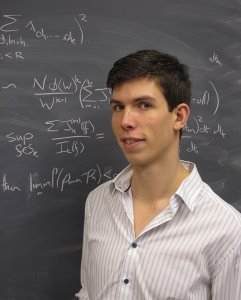Jackie Stedall came to Oxford in October 2000 as Clifford-Norton Student in the History of Science at Queen’s College. She held degrees of BA (later MA) in Mathematics from Cambridge University (1972), MSc in Statistics from the University of Kent (1973), and PhD in History of Mathematics from the Open University (2000). She also had a PGCE in Mathematics (Bristol Polytechnic 1991). In due course she became Senior Research Fellow in the Oxford Mathematical Institute and at Queen’s College, posts from which, knowing that she was suffering from incurable cancer, she took early retirement in December 2013.
This was her fifth career. Following her studies at Cambridge and Canterbury she had been three years a statistician, four years Overseas Programmes Administrator for War on Want, seven years a full-time parent, and eight years a schoolteacher before she became an academic.
Although her career as a researcher, scholar and university teacher spanned less than fourteen years, it was greatly influential. She published nine books, more than twenty articles, and major contributions to the on-line edition (with transcriptions, translations and commentary) of the manuscripts of Thomas Harriot. She earned herself an international reputation—twice she received invitations (courteously refused) to lecture at an ICM, for example.
Her Oxford teaching was equally successful. It was characterised by innovation. Jackie was instrumental in founding two third-year courses, History of Mathematics and, in a very different area, jointly with Cath Wilkins, the Part B Structured Projects in applied mathematics. She supervised many third- and fourth-year dissertations on historical topics. She earned awards for excellence in teaching on two separate occasions.
Jackie was exceptionally well organised, and expected the same in others. University lectures and classes, seminar and conference papers, all were prepared months ahead, never more than a few weeks after she had accepted a commission. Book manuscripts, copy for journals she edited, all reached the publisher safely before the contract date.
She was a great scholar, teacher, editor and organiser. More than that: to very many of us she was a great colleague and friend.
$\Pi$MN: Oxford: 1 October 2014











